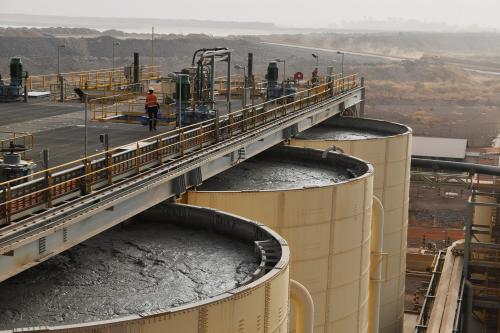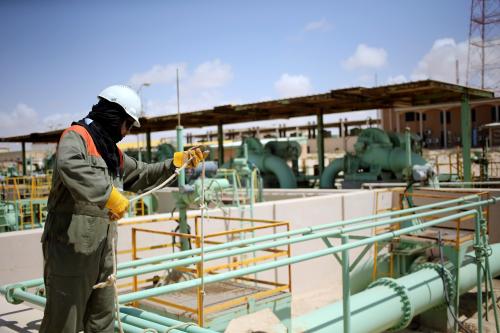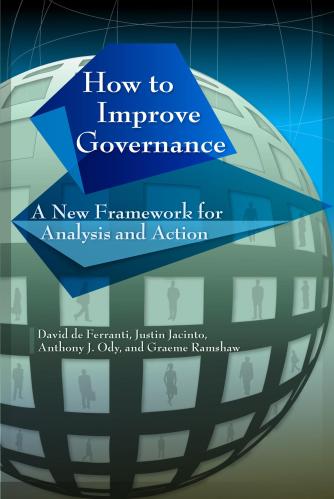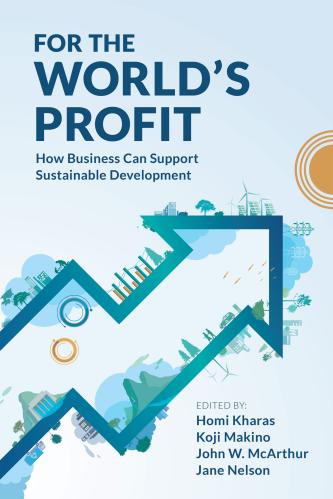When newly-elected President Barack Obama asked me at the outset of his administration how to make his White House corruption-proof, my first thought was: “impossible.” Corruption has been with us since time immemorial. Perhaps we could do better than average. But setting out to eliminate corruption entirely seemed a bridge too far.
Nevertheless, in my capacity as his “Ethics Czar,” I worked with the president to design a zero-tolerance program for White House aides. We implemented tough anti-corruption rules and leveraged them with aggressive transparency, e.g., restricting lobbyist contacts with the White House, and putting records of all our visitors online so the whole world could monitor compliance. The result at the end of eight years: For the first time in modern presidential history, not a single White House aide was prosecuted, convicted, or as far as we know, even investigated. Independent observers have hailed this record, and President Obama credited the program we developed for this outcome. (He disclosed my tongue-in-cheek motto in the following clip.)
Today, I’m pleased to be working with my Brookings colleagues, as well as leading anti-corruption researchers at the Natural Resource Governance Institute (NRGI) and Results for Development (R4D), to launch a global study of anti-corruption approaches inspired by those I helped pioneer in the Obama administration. We are testing those strategies in what we believe to be among the world’s toughest anti-corruption environments: the natural resource space.
Indeed, many researchers go so far as to talk about the “resource curse,” the (contested) idea that countries blessed with resource endowments are actually more likely to suffer from corruption and other ills. Of course, resource-rich countries are far from alone: Corruption bedevils every part of the world economy, costing the estimated equivalent of five percent of global GDP (or $2.6 trillion), with the annual cost of bribery alone estimated at over $1.5 trillion.
Our global project to test anti-corruption approaches along the natural resource value chain is called “Leveraging Transparency to Reduce Corruption” (LTRC). The project is led by three principal investigators: Daniel Kaufmann of NRGI, Nathaniel Heller of R4D, and me at Brookings. A joint research team drawn from all three organizations will be implementing this five-year, international effort; working with governments, civil society, the public, and other stakeholders to find innovative solutions to the scourge of corruption.
To establish a sound social science foundation for our work, we have spent the past year surveying the vast literature of anti-corruption approaches both inside and outside of the natural resource space, poring over more than 650 books, articles, reports, and more. We’re pleased to share an annotated bibliography containing more than 150 key resources addressing transparency, accountability, and participation efforts along the natural resource value chain. The annotated bibliography includes books, papers, datasets, and much other material. You can find it here, along with tools for mapping and sorting the materials annotated.
What’s next for LTRC? We are currently writing a paper articulating and grounding our hypotheses in light of our review of the existing scholarship. Next year, we will begin implementing a series of mixed-methods, small-scale studies that will test particular aspects of our hypotheses. We will work with stakeholders in selected jurisdictions all over the planet to conduct empirical analyses and determine which approaches work, releasing initial findings to the public in real time. We will follow the small-scale studies with larger ones in the years ahead, more firmly anchoring anti-corruption solutions in the evidence. Finally, we will conclude that work and publish the comprehensive findings, including our recommendations regarding leading practices for reducing corruption in the natural resource space and, we hope, more broadly.
We at Brookings, R4D, and NRGI are very excited about this new chapter in exploring and substantiating evidence-informed governance interventions. Having seen firsthand as “Ethics Czar” how leveraging transparency, accountability, and participation can address corruption, I am hopeful that we will break new ground. Today, when transparency and accountability are facing challenges all over the world, our task is more important than ever.
The Brookings Institution is committed to quality, independence, and impact.
We are supported by a diverse array of funders. In line with our values and policies, each Brookings publication represents the sole views of its author(s).










Commentary
Obama’s anti-corruption antidote: Can it work globally?
October 23, 2018